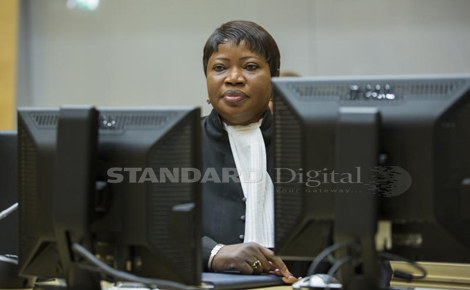×
The Standard e-Paper
Kenya’s Boldest Voice
 |
| ICC Chief Prosecutor Fatou Bensouda suffered a setback after Trial Chamber V (b) ruled that she had not convinced it that President Kenyatta was interfering with case. [PHOTO: FILE/STANDARD] |
THE HAGUE: The criminal case against President Uhuru Kenyatta at the International Criminal Court (ICC) could be terminated in a week’s time.
In what was a breath-taking ruling for the President, Trial Chamber V (b) Wednesday rejected an application by the Office of the Prosecution (OTP) to adjourn the case indefinitely awaiting full co-operation of the Kenya Government.